

The 43rd federal general election has come to a close with the Liberals winning a minority.
Over the course of the 40 day campaign, APTN News reporters across Canada reported from communities across the country to find out what you’re looking for from the Liberals, Conservatives, NDP, Greens, Bloc Québécois and the PPC.
Vote2019 | Watch our election coverage


The Stories
‘These are not distant dreams’: Federal parties must recognize the benefits of First Nation self-governance says Macdonald-Laurier Institute
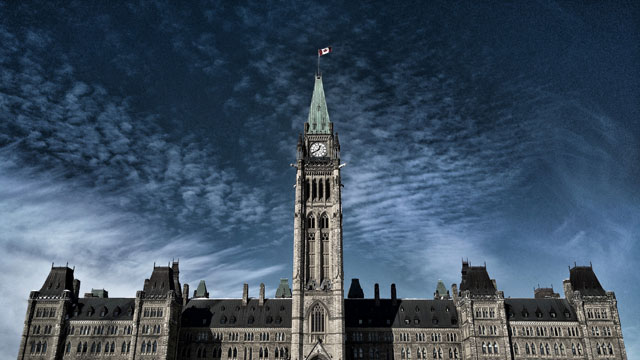

The federal election campaign provides all national parties with an opportunity to bring forward their ideas for the betterment of Canada. First Nations, many of whom live in conditions that other Canadians would be unacceptable and who cope with the legacy of generations of colonialism and government paternalism, will be listening very closely for signs that the political parties understand our needs and stand with us as we search for solutions. Read More.
With the federal election days away does Trudeau deserve another 4 years?
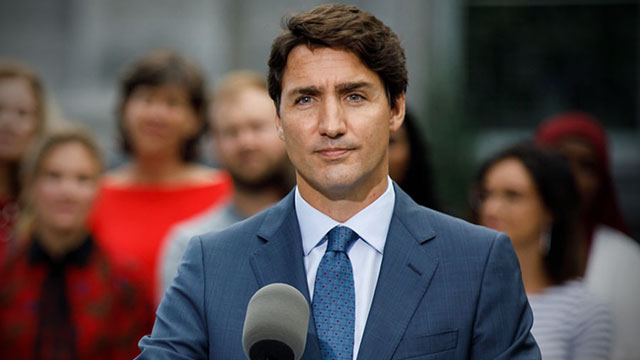

Justin Trudeau and the Liberals had the most progressive mandate when it came to Indigenous people than any government before them. But did Trudeau accomplish enough in his four years as prime minister to deserve votes from Indigenous people when the polls open Monday? Or does he deserve to be kicked out of office? Read more.
Indigenous women in expansive Quebec riding taking up the political torch
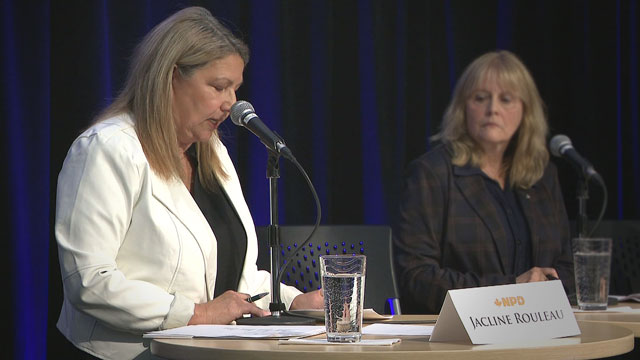

Indigenous women in the mammoth riding of Abitibi-Baie James-Nunavik-Eeyou in northern Quebec are stepping up to fill the spot left when NDP MP Romeo Saganash announced that he’s stepping away from federal politics. Jacline Rouleau – currently serving her third term as the Mayor of Senneterre – is running for the NDP, and Kiara Cabana-Whiteley, an Inuk teenager from Kuujjuaq, a recent honors graduate, is running for the Green party. Read More.
Riding in B.C. has highest percentage of Indigenous voters in province but no Indigenous candidates
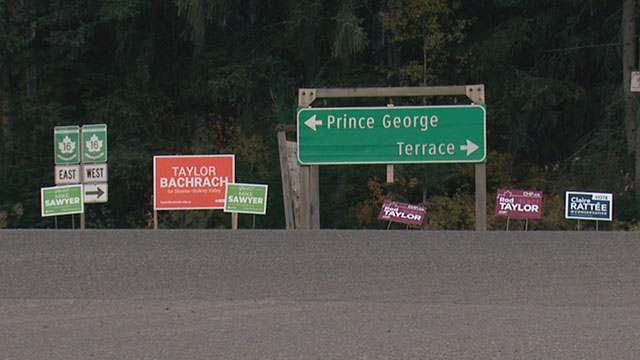

The federal riding of Skeen-Bulkey Valley may have the largest percentage of Indigenous voters in the province, but voters there have zero Indigenous candidates to mark their X beside. The riding is home to more than 89,000 people and covers most of Northern B.C., from Haida Gwaii to below the Alaskan panhandle. One-third of the voters are Indigenous. But there isn’t an Indigenous candidate on the ballot. Read More.
The federal election battle for Winnipeg Centre revolves around drugs and child poverty
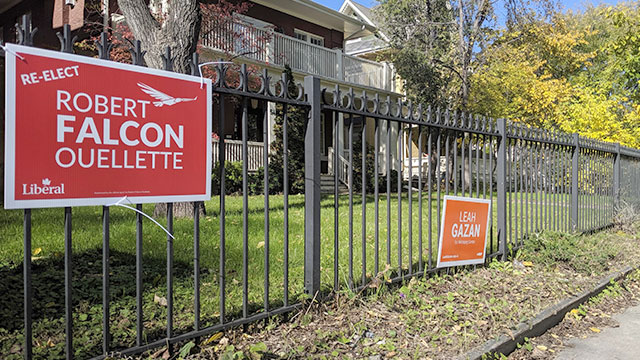

Two high profile First Nations candidates are the front runners to take on one of Winnipeg’s most publicized riding in this year’s federal election. Winnipeg Centre is home to 85,000 people. The riding stretches from the city’s West End to downtown, and is sandwiched between the Canadian Pacific Railway on the north side and the Assiniboine and Red rivers to the south. It’s also one of the city’s most diverse ridings with 40 per cent of the population identifying as a visible minority. Read More.
Missed the Indigenous Issues segment of the federal leaders’ debate? No problem – watch right here


On October 7, the leaders of Canada’s political parties, the Liberals, Conservatives, NDP, Green Party, Bloc Quebecois and the People’s Party of Canada, squared off in a debate over which party is the best party to form government at the Canadian Museum of History in Gatineau, Que. There were five segments including one on Indigenous issues. Elizabeth May called a “fragmented” segment but there was one surprise. Watch here.
‘Fractured’ Indigenous issues segment of debate brings few surprises


In an Indigenous segment she called “fractured” Elizabeth May of the Green Party led all leaders at the Canadian Museum of History in Gatineau, Que., by acknowledging the Monday night debate was taking place on the traditional territory of the Algonquin Nation. Then it would be more than an hour before the segment on Indigenous issues was introduced – chosen from more than 8,000 questions submitted by the public. Read More.
Grand Council in Saskatchewan getting the message out that federal election votes are important
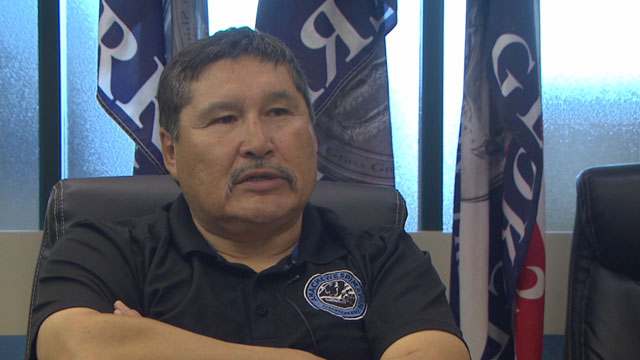

he Prince Albert Grand Council (PAGC) is encouraging its members in the territory to get out and vote in the upcoming federal election. “What we are doing is pretty much encouraging our membership to go to the polls to vote in this election,” said Grand Chief Brian Hardlotte. “And I guess the importance of their vote in this election.” Read More.
#Vote2019: Climate change and drinking water top Indigenous issues in federal election
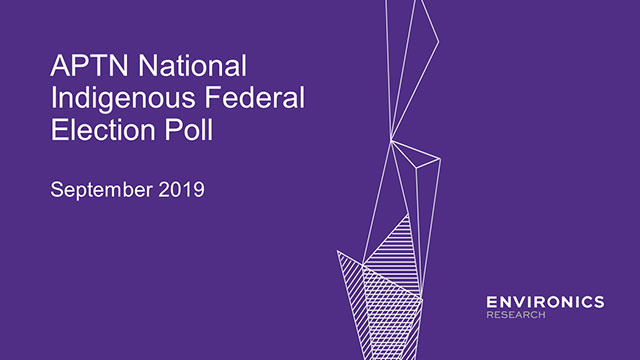

A new Environics Research poll shows Indigenous peoples have serious bread-and-butter concerns leading up to the federal election on Oct. 21. They worry about the quality of their drinking water and whether they will have jobs, according to the survey conducted for Aboriginal Peoples Television Network (APTN) between Sept. 4 and 12. Read More.
Conservative leader Andrew Scheer has more First Nations than any other leader – but do they support him?
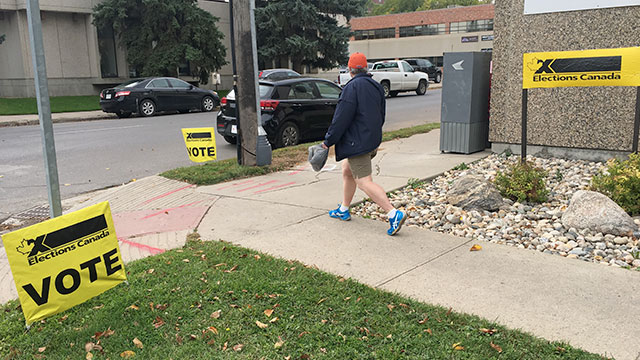

Gravel gives way to new blacktop here on the road leading into Pasqua First Nation. But that’s not something Conservative Leader Andrew Scheer would know, says Chief Todd Peigan, because the incumbent MP has never visited the reserve. “What can I tell you about Andy?” Peigan says over the phone from New York City, where he’s attending a special climate conference at the United Nations. “He has never attended Pasqua First Nation, he has never attended any of the party debates when they’re held on reserve.” Read More.
Trudeau government has ‘blood on their hands’ over deaths of Indigenous children: Grand Chief



Prime Minister Justin Trudeau touted his funding record on Indigenous people when confronted on the campaign trail over an APTN News investigation that found 48 Indigenous children connected to child welfare died as his government ignored a human rights tribunal ruling. Enough is enough said Joel Abram, grand chief of the Association of Iroquois and Allied Indians in southern Ontario. “That’s blood on their hands in some ways because they are responsible for whole child welfare system,” said Abram, who does a lot of work on Indigenous child welfare. Read More.
Infrastructure, suicide prevention on ITK list of issues that need to be addressed by federal parties
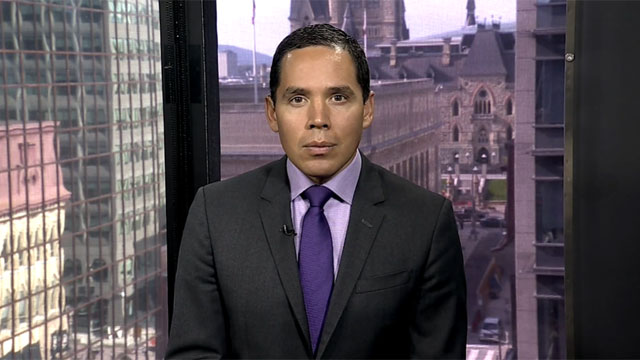

The Inuit Tapiriit Kanatami (ITK) will work with whatever party forms government on October 21, according to its president Natan Obed. “I do hope that no matter what government is formed that reconciliation and the urgency around improving socio-economic status, implementing land claims, respecting Inuit and Indigenous peoples rights is at the heart of any mandate of any government that’s formed.” The ITK says that social infrastructure, suicide prevention and family violence shelters and housing are among the issues the next federal government must address in the north. Read more.
Nunavut’s NDP candidate in federal election is 25, just like the Inuit who founded the territory


Mumilaaq Qaqqaq walks up to the agreed meeting spot wearing a light fall coat and purple hat to ward off the crisp air that has landed on Iqaluit early in this federal election. The city she now calls home is spread out behind her. Qaqqaq, 25, is the NDPs choice candidate to win the open riding. That’s young by federal standards, but things are different in Nunavut. Nunavut’s average age is 25, and there is a history of younger people getting things done. Read More.
Indigenous candidates in federal election race meet the chiefs at AFN forum in Vancouver


A number of the Indigenous candidates running in the federal election in B.C. joined chiefs from across the province at an Assembly of First Nations Annual General Assembly. Jody Wilson Raybould, independent – Vancouver-Granville, was joined by Bob Chamberlin, NDP – Nanaimo-Ladysmith and Michelle Corfield who is running against Chamberlain for the Liberals, Lydia Hwitsum, Green Party – Cowichan – Malahat – Langford riding and Joan Phillip is running for the NDP in Central Okanagan-Similkameen–Nicola. Read More.
Conservatives, NDP promise national suicide prevention strategy if elected
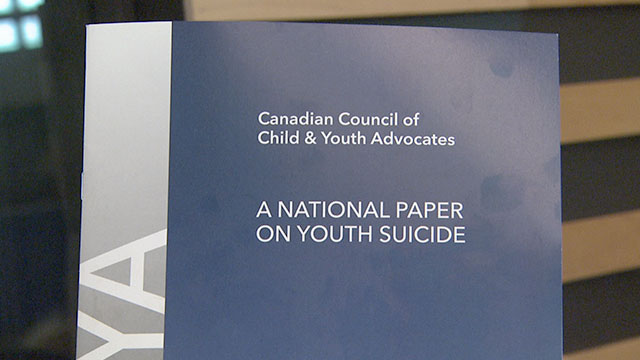

The Conservatives and NDP are promising to bring in a national suicide strategy if elected on Oct. 21. This follows a release of a report from child advocates from across the country who criticized the federal government for not having a plan. Liberal leader Justin Trudeau did specifically promise to build a strategy if relected did say that Canada needed to do more. The Progressive People’s Party under Maxime Bernier said any kind of strategy would be provincial jurisdiction. The Greens did not respond to APTN News. Read More.
AMC holds meet and greet with federal candidates to boost First Nation vote
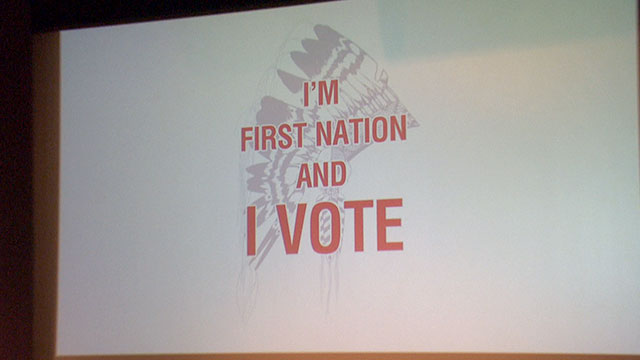

The Assembly of Manitoba chiefs held a townhall meeting in Winnipeg Monday to introduce some of the candidates running in the upcoming federal election. The AMC hopes it will strengthen the First Nations vote. “I prayed that we share this tobacco with the candidates and part of our teaching when we hold tobacco, like we do here, is for respect and also for honesty that our candidates can speak the truth,” Elder Dennis White Bird from the Rolling River First Nation said to open the forum. Read More.
Trudeau calls election, neglects to mention Indigenous peoples in campaign speech



Justin Trudeau called the fall election Wednesday and set out a host of priorities in a speech that did not specifically include Indigenous relations. In his speech the prime minister appealed to middle class Canadians, single parents and families, workers, recent graduates, seniors and pensioners and new Canadians, but did not mention Indigenous peoples before concluding with the statement, “I’m for moving forward for everyone.” The Oct. 21 election is poised to be among the most important in the country’s 152-year history. Read More.
The Leaders | #Vote2019
One of the people below will be Prime Minister on October 21. Here is who they are, according to biographies listed on the party’s website. These have been edited for length.


Justin Trudeau
Leader of the Liberal Party
Justin Trudeau is Canada’s 23rd Prime Minister. He also serves as Minister of Youth. The oldest of three boys, Trudeau grew up with the profound influence of his father, Pierre Elliott Trudeau, and his mother, Margaret Trudeau. He was raised speaking both French and English and has family roots in both Eastern and Western Canada. Trudeau was elected Leader of the Liberal Party in April 2013. According to the Liberals, his leadership campaign focused on building a new, truly national movement of progressive Canadians, bringing hundreds of thousands of Canadians into politics, most for the first time. He worked closely with his team to build a plan to create jobs, grow the economy, and strengthen the middle class. With Trudeau’s leadership, the Liberal plan emphasized fair economic opportunity for everyone, respect for and promotion of freedom and diversity, and a more democratic government that truly represents Canadians. On October 19, 2015, Trudeau led the Liberals to power.


Andrew Scheer
Leader of the Conservative Party
Andrew Scheer has been the Leader of the Conservative Party of Canada since May 27, 2017. Scheer speaks both English and French. He’s a husband and father of five children. In 2004, Scheer was elected Conservative Member of Parliament for Regina—Qu’Appelle, defeating the longest-serving MP at the time. His riding has 31 Indigenous communities in it. One of Canada’s youngest MPs when he was first elected, his hard work and strong Conservative principles earned him the continued confidence of his constituents, winning re-election in 2006, 2008, 2011 and 2015. After the 2011 election, Scheer was elected Speaker of the House of Commons – the youngest person ever to take up that position. Moving to Opposition after the 2015 election, Andrew served as Official Opposition House Leader before successfully seeking the leadership of the Conservative Party in 2017.


Jagmeet Singh
Leader of the New Democratic Party
Jagmeet Singh grew up in Scarborough, St. John’s, and Windsor, and served as an Ontario MPP from 2011 until 2017. On October 1st, 2017, he became leader of Canada’s NDP. At university, he was an outspoken activist who fought against raising tuition fees. He studied law so he could support community organizations fighting poverty, keeping tuition affordable, and advocating for equal access to justice for marginalized communities. On October 1st, 2017, Singh became leader of Canada’s NDP after a first ballot victory. As leader, Singh is putting everything he has into building that Canada – he is determined to fight for solutions people urgently need right now. That means fighting for good jobs to combat growing inequality. It means a real plan for our environment that includes workers and their families. It means pursuing true reconciliation with Indigenous communities.
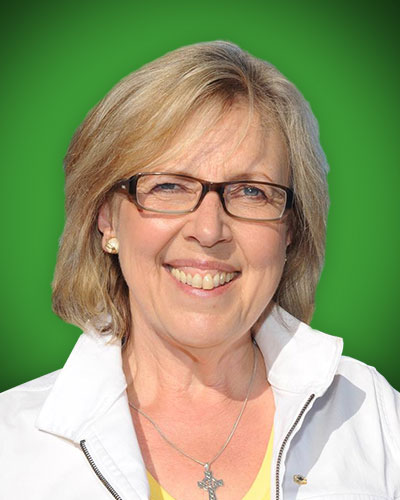

Elizabeth May
Leader of the Green Party
Elizabeth May is an environmentalist, a lawyer, an author, an activist, a mother, grandmother, and friend. Most recently she married John Kidder, gaining 3 more daughters and 7 grandchildren. Among her many awards, in 2005 she joined the Order of Canada at the Officer level-our country’s highest citizen honour-awarded for her years of service in the environmental movement. Among her accomplishments working as the Saanich – Gulf Islands MP, she sponsored several private member’s bills, including the Lyme Disease Act which the House and Senate passed unanimously. By a vote of all MPs, she was chosen as Maclean’s magazine’s 2012 Parliamentarian of the Year. In 2013, Hardest Working MP. In 2014, Best Orator. In both 2013 and 2014, The Hill Times declared her the Hardest Working MP, Best Constituency MP and Best Public Speaker. By 2017, she had presented more amendments to legislation than any single MP in history.


Yves-François Blanchet
Leader of the Bloc Quebecois
Born in Drummondville, on April 16, 1965, Yves-François Blanchet is the son of Raymond Blanchet, technician and lineman at Bell, and Pierrette Bédard, nurse, teacher and radio host. He was a permanent employee on the National Youth Committee of the Parti Québécois in 1988 and 1989, regional president of the Parti Québécois in 1987 and 1988 and was elected member of that party in Drummond in 2008. He was elected to the National Assembly in 2012 and was the vice-president of the committee on Culture and Education from February 14 to August 1, 2012. He was the Chief Government Whip from September 11 to December 3, 2012 and minister of Sustainable Development, Environment, Wildlife and Parks from December 4, 2012 to April 23, 2014 but was defeated in 2014. He announced his candidacy to become leader of the Bloc Québécois on November 26, 2018; was declared elected on January 17, 2019.


Maxime Bernier
Leader of the People’s Party of Canada
Maxime Bernier was born January 18, 1963, in St-Georges-de-Beauce. He is the father of two girls. Bernier was elected MP for Beauce on January 23, 2006, with the largest majority outside Alberta. He was appointed to Cabinet on February 6, 2006, as Minister of Industry. His success in deregulating major portions of the telecommunications sector prompted the chair of the Political Science department at McGill University, to write, “In terms of what is perhaps the single most important component of his Industry portfolio, telecommunications, he was without challenge the best Industry Minister in thirty years.” Maxime Bernier was re-elected a fourth time in November, 2015, receiving more than 59% of the vote. On August 23, 2018, he left the Conservative Party of Canada to sit as an independent MP and announced the launch of a new party.



